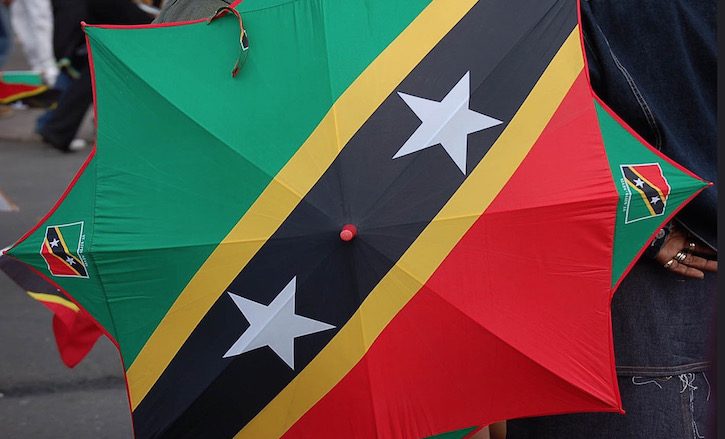
Democracy in the English-speaking Caribbean has been held up as one of the great success stories of the region. Ever since universal adult suffrage was introduced in Jamaica in 1944 the vast majority of elections across the region have been free and fair with open party electoral competition.
There have only been a few occasions when democracy has been significantly compromised: in Guyana in 1953 when the British government annulled elections after the Marxist Cheddi Jagan was elected as prime minister and during the late 1960s and 1970s under the autocratic leadership of Forbes Burnham; in Grenada in the late 1970s and early 1980s under the administrations of Eric Gairy and Maurice Bishop; and in Jamaica in 1983 when the opposition People’s National Party boycotted the general election after a dispute over electoral roles. These examples are not inconsequential, but if one compares democracy in the English-speaking Caribbean with the rest of the region (Cuba, Dominican Republic, Haiti, and Suriname) and Latin America, then the record stands up very well. However, this is not to say that democracy is perfect in the English-speaking Caribbean, with the vagaries of the Westminster political system, lax rules in relation to party funding, and concerns over corruption. Further and more particularly, recent developments in two countries – Trinidad and Tobago and St Kitts and Nevis – have highlighted the often fragile nature of democracy in the region.
In Trinidad and Tobago, just months before a general election is due to be called, the government of Prime Minister Kamla Persad-Bissessar has been placed into turmoil as a consequence of a scandal involving the country’s now ex-Attorney-General, Anand Ramlogan and ex-Minister of National Security, Garry Griffith. In late January it was revealed that the country’s police force had placed Ramlogan under criminal investigation. The probe is considering whether Ramlogan contacted David West, just prior to his appointment as Director of the Police Complaints Authority, and asked him to withdraw his witness statement in a defamation lawsuit brought by Ramlogan against opposition leader, Keith Rowley. The police said that West had signed a statement alleging witness-tampering and “an attempt to pervert the course of justice”. This is the first time the country’s attorney-general has been placed under police investigation.
The case relates to Rowley’s claim that Ramlogan was aware that key donors to the government would escape corruption and money laundering charges as a result of the short lived Section 34 of the Administration of Justice (Indictable Proceedings) Act of 2012, which imposed a ten-year statutory limit for cases. The claims are damaging to an administration that has already suffered its fair share of scandal, but they also highlight the awkward dual role of attorneys-general in the English-speaking Caribbean – as members of the government but also guardians of the public interest. In countries, such as Trinidad, with small populations, a concentration of power in the central government, and limited checks and balances, the attorney-general often curbs rather than enhances the democratic process.
In St Kitts and Nevis, meanwhile, there have been a series of issues that have undermined the democratic system. Problems started in January 2013 when the governing St Kitts Nevis Labour Party (SKNLP) was weakened after two ministers resigned and supported a motion of no confidence that the opposition was trying to put to the National Assembly. However, the now minority government blocked its consideration – achieved by the support of appointed senators; even though only elected members were entitled to vote on a no-confidence motion. Thus this tactic was extremely controversial. In response, the opposition boycotted parliament. Then more recently, on 16 January this year, the government introduced new constituency boundaries – just a month before a general election was due. The opposition, however, argued the proclamation was not correctly gazetted; they also said the new boundaries would give government candidates an unfair advantage. As a consequence, the opposition launched a legal challenge against the decision.
In the end, after local courts had dismissed its appeals, the London-based Judicial Committee of the Privy Council heard the case, and upheld the challenge. As a result the old boundaries were used. When the election was held the opposition Team Unity Alliance won, defeating the SKNLP which had been in power for 20 years. However, delays in announcing the results caused widespread concern among Caribbean leaders and internationally; and although outgoing Prime Minister Densil Douglas accepted defeat, he claimed that acts of “sabotage” had cost him the election. In the words of Antiguan commentator, Colin Sampson, developments underscored “the archaic, decrepit and corrupted state of the St Kitts & Nevis electoral system”.
Indeed, what took place in St Kitts highlights a range of issues of relevance to the wider region, such as: the misuse of parliamentary procedure, the fairness and equity of constituency boundaries, the independence of election officials, the difficultly of defeating an incumbent, and the appropriateness of a London-based final court of appeal. Despite the generally good record of democracy in the Caribbean, the region cannot rest on its laurels.
Further Reading on E-International Relations
- Opinion – China’s Soft Power Diplomacy in the Caribbean
- Internet Democracy in ‘New’ India
- The 2018 Elections and the Uncertain Future of Brazilian Democracy
- Democracy Support and the European Parliament
- Mechanisms Behind Diffusion of Democracy in the Pearl River Delta Region
- Improving Democracy for the Future: Why Democracy Can Handle Climate Change